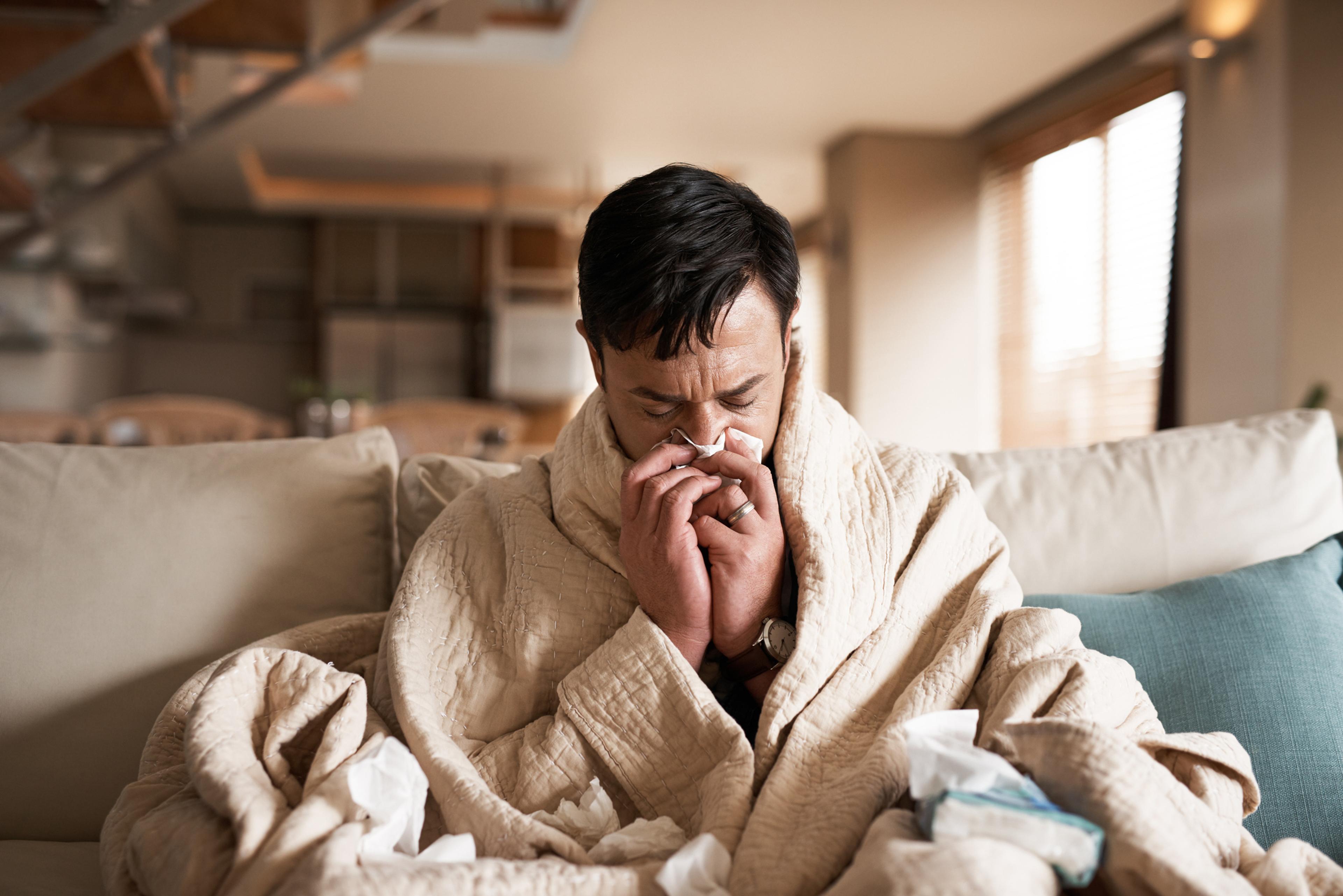Why You Feel So Grumpy When You’re Sick

Lindsay Knake
| 3 min read
Lindsay Knake is a brand journalist for Blue Cross B...

If you feel grumpy, irritable and anti-social when you’re sick, it’s the illness.
The desire to pull away from other people and be mad about everything is a normal response when you have a viral or bacterial infection. This is called “sickness behavior.”
Why you feel irritable when you're sick
When you get sick with a common cold, influenza or other illness, your body releases cytokines that cause a healthy, complex and temporary inflammatory response. Cytokines are proteins that work as messengers that signal immune cells to fight pathogens such as viruses and bacteria, according to the Cleveland Clinic. These cytokines also tell your brain to slow down, rest and even to stop eating and drinking. You may also experience:
- Grumpiness
- Irritability
- Tearfulness
- Mental fog
- Fatigue
- Malaise
- Social withdrawal
- Loss of libido
These symptoms may make you feel even worse on top of fever, coughing, chills, congestion, nausea and body aches from your illness or infection. Sickness behaviors are a normal response meant to conserve energy, fight infection and protect you and the people around you. Withdrawing from others reduces the chance that they will also become infected if you are contagious. When you recover, cytokines signal your immune system to stop the inflammatory response.
People with chronic pain or serious diseases such as cancer can also experience ongoing sickness behaviors. There also may be a link between chronic inflammation and depression, according to a study. Talk to your primary care physician if you have long-term depressive symptoms or sickness behaviors.
How to deal with sickness behavior
Sickness behavior can be as difficult to manage as the actual infection. Here are a few ways to cope with the grumpiness while you’re sick:
Accept what you’re feeling
Being annoyed at your irritability can make managing it even more challenging. Don’t fight your feelings. If you are grumpy, be grumpy. If you feel like crying, allow yourself to cry. The next time you find yourself sick and irritable, remember: it’s the illness, and it will pass.
Practice self-compassion
We all get sick. Showing compassion toward yourself or a loved one with an illness is key. Don’t push yourself to be productive through the illness. Your body is fatigued for a reason, to put your energy toward recovery.
Drink plenty of fluids
Even if you don’t feel like drinking, keep up with hydration. Water, herbal tea and broth will keep you from getting dehydrated, which can cause muscle cramps, weakness and more fatigue. Drinking enough water can loosen mucus, prevent headaches and helps your immune system by delivering oxygen. Avoid alcohol, which dehydrates you and impairs your sleep.
Do calming breathwork
Deep breathing and breathwork can help calm your nervous system and relieve emotional and physical stress. Taking slow, deep, even breaths from your diaphragm for a few minutes can help you relax and lower your blood pressure. Consider a technique like box breathing: inhale, hold your breath, exhale, then hold your breath again for four seconds each. These practices can also help you fall asleep more easily.
Take a nap
Your body needs all the energy you can muster to fight off the infection. Sleeping is important for recovery, but this can also give you a mental break from how you’re feeling. Let yourself take a midday nap, get to bed early or both. Even if you have trouble falling asleep, lying down with your eyes closed still gives your body the rest it needs.
Distract yourself
Distraction can be a powerful tool when you aren’t feeling well. A comforting TV show, film or book can take your mind off how you feel. Audiobooks and podcasts can work if you’re too tired to keep your eyes open but struggle to sleep.
Image: Getty Images
Related:





